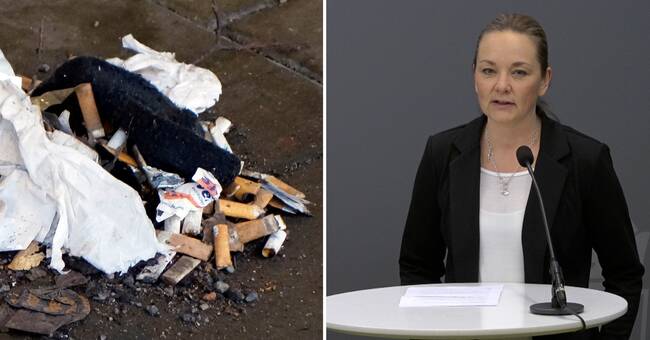It is already clear that the EU directive on disposable plastic means that straws and disposable plastic cutlery are generally banned.
The government is now presenting proposals for more measures for Sweden to reduce litter and the use of plastic.
The investigation has, among other things, been based on a rubbish measurement during a week this year, which gave the result 35 million discarded articles on the slopes or in nature.
The litter included 22 million fimps, 4.8 million portion snus and 140,000 disposable mugs.
Here are the government's proposals:
Zero tolerance for littering
Littering is prohibited by law, but littering with occasional minor objects is exempt from the penal provisions.
That exception proposes the government investigation be removed.
Throwing a pimp, a candy wrapper or a mug on the hill should therefore be able to give a fine.
Littering fee for producers of disposable materials
Materials that litter down must be provided with a fee.
It is based on how large a share of the litter a product category constitutes.
For example, a cigarette with a filter gets a fee of 12.4 öre and a disposable mug gets a littering fee of 0.4 öre per mug.
The fee is expected to bring in SEK 800 million per year.
The income will go to the municipalities so that they can clean better.
Collection system for fimpar
The producers are given responsibility for setting up ashtrays in a public environment and must also pay for the set-up.
Sustainable take away
To reduce the consumption of disposable items, the inquiry proposes that those who serve food in disposable packaging should be obliged to offer reusable lunch boxes and mugs.
Plastic ban in mugs
Mugs that contain more than ten percent plastic should be banned in restaurants and fast food places.
The ban will apply from 2024 and will initially not cover small food suppliers who handle less than 100 mugs a day.
Recyclable plastic only
The inquiry proposes that new plastic products should not be allowed on the market if they cannot be recycled.
A package must also contain at least 30 percent recycled plastic by 2030.
Exception:
Disposable plastics used in healthcare are exempt from the above proposals.

